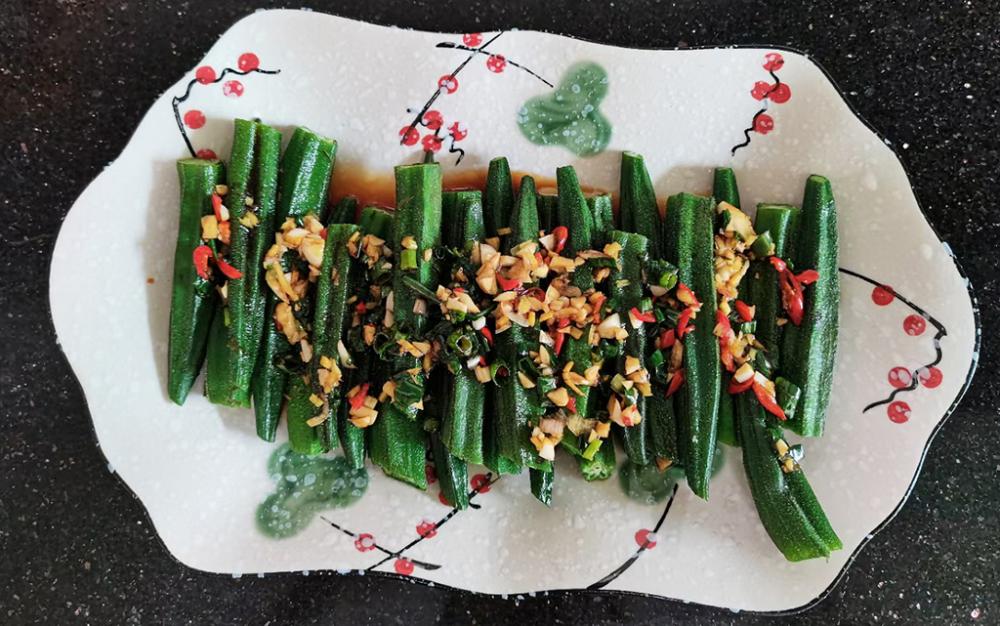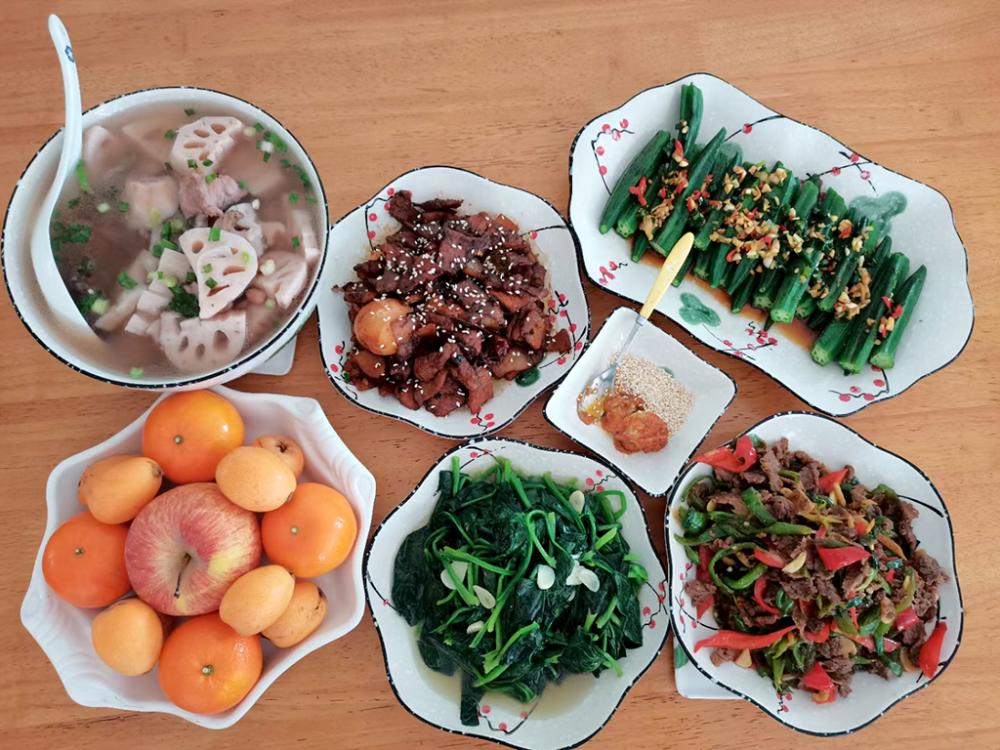Search the Community
Showing results for tags 'Vegetarian'.
-
Perhaps the food-related question I get asked most through my blog is “What's it like for vegetarians and vegans in China. The same question came up recently on another thread, so I put this together. Hope it's useful. It would also, be great to hear other people's experience and solutions. For the sake of typing convenience I’m going to conflate 'vegetarians and vegan' into just 'vegetarian' except where strictly relevant. First a declaration of non-interest. I am very carnivorous, but I have known vegetarians who have passed through China, some staying only a few weeks, others staying for years. Being vegetarian in China is a complicated issue. In some ways, China is probably one of the best countries in which to be vegetarian. In other ways, it is one of the worst. I spent a couple of years in Gorbachev-era Russia and saw the empty supermarkets and markets. I saw people line up for hours to buy a bit of bread. So, when I first came to China, I kind of expected the same. Instead, the first market I visited astounded me. The place was piled high with food, including around 30 different types of tofu, countless varieties of steamed buns and flat breads and scores of different vegetables, both fresh and preserved, most of which I didn't recognise. And so cheap I could hardly convert into any western currency. If you are able to self-cater then China is heaven for vegetarians. For short term visitors dependent on restaurants or street food, the story is very different. Despite the perception of a Buddhist tradition (not that strong, actually), very few Chinese are vegetarian and many just do not understand the concept. Explaining in a restaurant that you don't eat meat is no guarantee that you won't be served meat. Meat is seen in China as a status symbol. If you are rich, you eat more meat. And everyone knows all foreigners are rich, so of course they eat meat! Meat eating is very much on the rise as China gets more rich - even to the extent of worrying many economists, food scientists etc. who fear the demand is pushing up prices and is environmentally dangerous. But that's another issue. Obesity is also more and more of a problem. Banquet meals as served in large hotels and banquet dedicated restaurants will typically have a lot more meat dishes than a smaller family restaurant. Also, the amount of meat in any dish will be greater in the banquet style places. Traditional Chinese cooking is/was very vegetable orientated. I still see my neighbours come home from the market with their catch of greenery every morning. However, whereas meat wasn't the central component of dinner, it was used almost as a condiment or seasoning. Your stir fried tofu dish may come with a scattering of ground pork on top, for example. This will not usually be mentioned on the menu. Simple stir fried vegetables are often cooked in lard (pig fat) to 'improve' the flavour. Another problem is that the Chinese word for meat (肉), when used on its own refers to pork. Other meats are specified, eg (beef) is 牛肉, literally cattle meat. What this means is that when you say you don't eat meat, they often think you mean you don't eat pork (something they do understand from the Chinese Muslim community), so they rush off to the kitchen and cook you up some stir fried chicken! I've actually heard a waitress saying to someone that chicken isn't meat. Also, few Chinese wait staff or cooks seem to know that ham is pig meat. I have also had a waitress argue ferociously with me that the unasked for ham in a dish of egg fried rice wasn't meat. Also, Chinese restaurant dishes are often given have really flowery, poetic names which tell you nothing of the contents. Chinese speakers have to ask. One dish on my local restaurant menu reads “Maternal Grandmother's Fluttering Fragrance.” It is, of course, spicy pork ribs! Away from the tourist places, where you probably don't want to be eating anyway, very few restaurants will have translations of any sort. Even the best places' translations will be indecipherable. I have been in restaurants where they have supplied an “English menu”, but if I didn't know Chinese would have been unable to order anything. It was gibberish. To go back to Buddhism and Taoism, it is a mistake to assume that genuine followers of either (or more usually a mix of the two) are necessarily vegetarian. Many Chinese Buddhists are not. In fact, the Dalai Lama states in his autobiography that he is not vegetarian. It would be very difficult to survive in Tibet on a vegetarian diet. There are vegetarian restaurants in many places (although the ones around where I am never seem to last more than six months). In the larger cities such as Beijing and Shanghai they are more easily findable. Curiously, many of these restaurants make a point of emulating meat dishes. The menu reads like any meat using restaurant, but the “meat” is made from vegetable substitutes (often wheat gluten or konjac based). To be continued
-
I'd like to create a good vegetarian burger from scratch. I'm not happy with any of the commercially available products. Ideally, the burger I'd make would have the following attributes: 1) Not based on starch (such as rice); 2) Low fat (a minimum of eggs, cheese, oil); 3) Not trying to look or taste like meat; and 4) Able to be pre-made and stored in the freezer. Can you help? I'm interested not so much in a recipe as in an approach to thinking about veggie burgers. Also how do you recommend cooking and serving them?
-
Yesterday, an old friend sent me a picture of her family dinner, which she prepared. She was never much of a cook, so I was a bit surprised. It's the first I've seen her cook in 25 years. Here is the spread. I immediately zoomed in on one dish - the okra. For the first 20-odd years I lived in China, I never saw okra - no one knew what it was. I managed to find its Chinese name ( 秋葵 - qiū kuí) in a scientific dictionary, but that didn't help. I just got the same blank looks. Then about 3 years ago, it started to creep into a few supermarkets. At first, they stocked the biggest pods they could find - stringy and inedible - but they worked it out eventually. Now okra is everywhere. I cook okra often, but have never seen it served in China before (had it down the road in Vietnam, though) and there are zero recipes in any of my Chinese language cookbooks. So, I did the sensible thing and asked my friend how she prepared it. Here is her method. 1. First bring a pan of water to the boil. Add the washed okra and boil for two minutes. Drain. 2. Top and tail the pods. Her technique for that is interesting. 3. Finely mince garlic, ginger, red chilli and green onion in equal quantities. Heat oil and pour over the prepared garlic mix. Add a little soy sauce. 4. Place garlic mix over the okra and serve. When I heard step one, I thought she was merely blanching the vegetable, but she assures me that is all the cooking it gets or needs, but she did say she doesn't like it too soft. Also, I should have mentioned that she is from Hunan province so the red chilli is inevitable. Anyway, I plan to make this tomorrow. I'm not convinced, but we'll see. to be continued
-
Roasted Cauliflower (aka Jim Dixon's Roasted Cauliflower, no wait, that's Amanda Hesser's recipe! Or is it?) Serves 6 as Amuseor 4 as Appetizeror 2 as Side. Here's a link to my post on the Veggies, Don't eat enough of them thread on eGullet. In that post, I refer to Jim Dixon's first mention of this dish on eGullet. Here is a link to Caramelized Cauliflower on his website, Real Good Food. Here's a link to Amanda Hesser's article in the NYT: The Celestial Cauliflower, published January 17, 2001. Finally, here's a link to the current eGullet discussion thread about roasted cauliflower. Does it taste like french fries to you? Regardless of who created this recipe, it is a must try for everyone who ever thought cauliflower was characterless. Here's how Jason and I make it: 1 Head of Cauliflower (or more!!!) 1/4 c Good Olive Oil (EVOO not necessary) Kosher or Sea Salt Freshly Ground Black Pepper Preheat oven to 400F. Trim and wash the whole head of Cauliflower then slice it about 1/4 inch thick. There will be lots of small pieces and several large lacy slices. Place the cauliflower into a large bowl and drizzle on the Olive Oil, Salt and Pepper to taste, toss to coat. Spread the cauliflower evenly onto sheet pans (I use 2 half-sheet pans) and put in the oven. After about 10 minutes, stir them around to get the pieces on the edge of the pan moved towards the middle to encourage even browning, stir again every 5-10 minutes. After about 20 minutes it is ready, but can be left a little longer until even more browned depending on your taste and addiction level. Plan on 1 head of Cauliflower for every 2 people you are planning to serve. It reduces in volume significantly and is very addictive. Leftovers (leftovers?!) are excellent hot or cold (especially with Tahini Sauce). Keywords: Amuse, Appetizer, Side, Kosher, Vegan, Vegetarian, Intermediate, Vegetables, Dinner, Lunch, Snack ( RG167 )






